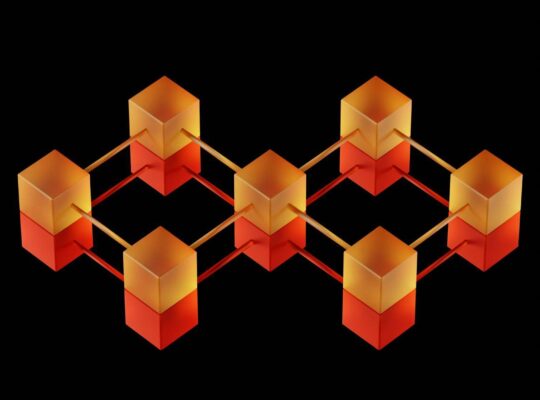Modern cybersecurity threats are becoming increasingly sophisticated. Hackers use artificial intelligence, deepfakes, and complex hacking algorithms to gain access to confidential information. In this race for security, a new player emerges that could change the rules of the game — quantum communication. It promises not only to improve data protection but to make it truly unbreakable. But how exactly does this technology work, and why is it attracting the attention of not only the scientific community but also governments, companies, and even telecom operators in Portugal?
What is quantum communication?
Quantum communication is based on the laws of quantum physics — a branch of science that studies the behavior of elementary particles at the subatomic level. The main difference from classical forms of data transmission lies in the use of quantum bits (qubits), which can exist in a state of superposition — that is, being in several states at once. This opens the door to an entirely new method of data exchange.
The most interesting and promising element of quantum communication is Quantum Key Distribution (QKD). This technology allows two parties to exchange cryptographic keys in an absolutely secure way. If someone tries to intercept the key, the very nature of the quantum system will “report” it: the measurement of the qubits will change their state, and the participants will immediately be aware of the intrusion.
Why is quantum communication more secure than classical technologies?
The vulnerability of classical encryption
Today’s encryption systems, such as RSA or AES, rely on mathematical complexity. For example, to break RSA, one must factor a large number into prime numbers — a task that is far too difficult even for supercomputers. However, with the development of quantum computing, this “complexity” becomes a temporary barrier. Shor’s quantum algorithm, for instance, can theoretically break RSA in a reasonable amount of time.
Advantages of quantum cryptography
Quantum cryptography doesn’t just make hacking difficult — it makes it fundamentally impossible. If someone attempts to intercept a quantum key, it will immediately be destroyed, and both parties will know about the interference. This makes it possible to guarantee absolute data confidentiality — the dream of any security system.
Furthermore, quantum communication does not rely on computing power, unlike classical cryptography, which can be broken with a sufficiently powerful computer. Here, security is built into the very physics of data transmission.
Where is quantum communication already being used?
Although the technology is still far from widespread, certain countries and corporations are already experimenting with its implementation. In China, the first quantum satellite network was created, capable of transmitting encrypted messages over distances of more than a thousand kilometers. In Europe, including Portugal, pilot projects have been launched under EU initiatives to develop quantum communication networks.
For example, in Lisbon, tests are being conducted on an urban quantum line between government agencies and research centers. These projects aim to create secure communication channels, especially for governmental and medical infrastructure. Even telecommunications companies are already investing in development — because in the future digital world, cybersecurity will become not just desirable but critically necessary.
Will quantum communication be available to the general public?
Technical and financial limitations
At the current stage, quantum communication remains expensive and technologically complex. The transmission of qubits requires special conditions, including fiber optic lines and quantum photon generators. For now, this makes the technology accessible only to large institutions and specialized networks. However, the same was true for mobile communication and the internet in their early days.
The outlook for the coming years
Experts believe that a large-scale infrastructure transformation will occur within the next 10–15 years. Even now, EU governments are investing billions of euros in the development of quantum technologies, including the creation of EuroQCI (European Quantum Communication Infrastructure) — a project to build a secure quantum network across the entire European Union.
For users, this could mean that in the future, quantum-secure messengers, email, or banking services will become the norm. It’s possible that the next generation of phones will be equipped with quantum chips for secure data exchange.
Portugal and the quantum future
Portugal is one of the countries actively supporting innovation in digital technologies. Universities in Coimbra and Porto are already participating in quantum cryptography research. Government agencies are working on implementing quantum security standards in critical infrastructures — from healthcare to energy.
For the country, this is a chance not only to strengthen national security but also to position itself among the European leaders in cutting-edge technology. Given the rise of cyber threats, especially in the financial and medical sectors, the development of quantum communication may become key to ensuring digital sovereignty.
Conclusion
Quantum communication is not just a futuristic concept. It is a real technology that can fundamentally change the way we approach data protection. A world in which data cannot be intercepted or falsified is no longer science fiction. The only question is how quickly we can adapt to this new reality. Portugal, as part of the European digital space, has already taken the first steps in this direction. And it is entirely possible that within a few years, we will be sending personal messages and banking data with the confidence that they are truly protected — at the quantum level.






